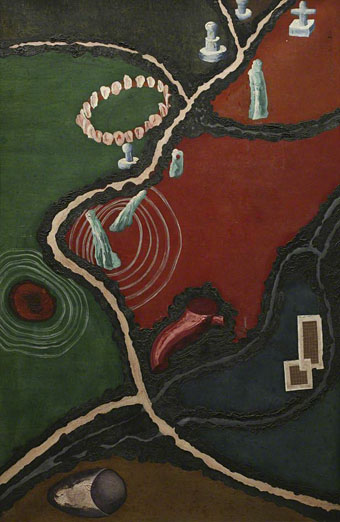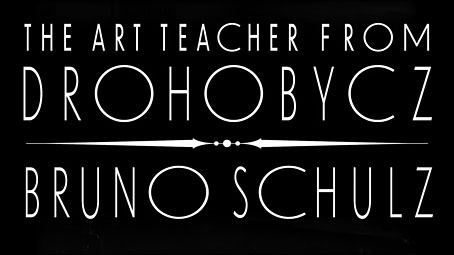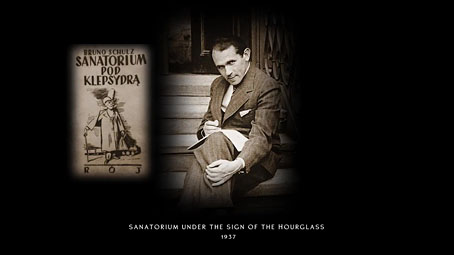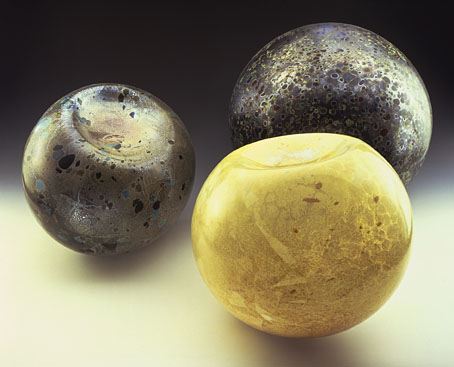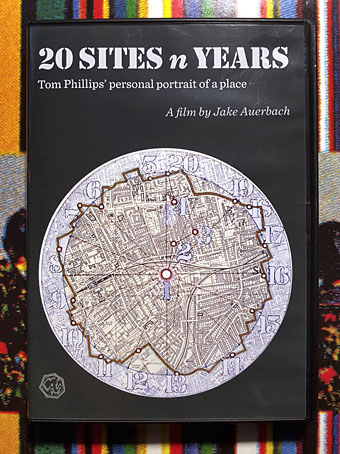
This isn’t the first time I’ve written about Tom Phillips’ indefinite art project but I thought I’d give Jake Auerbach’s documentary some belated promotion after watching it again. The usual form here would be to link to a viewable copy somewhere. There is a copy online, as it happens, but it’s not in any of the obvious places so rather than link to it I’d encourage the interested to invest in one of Auerbach’s DVDs or watch the streaming version.
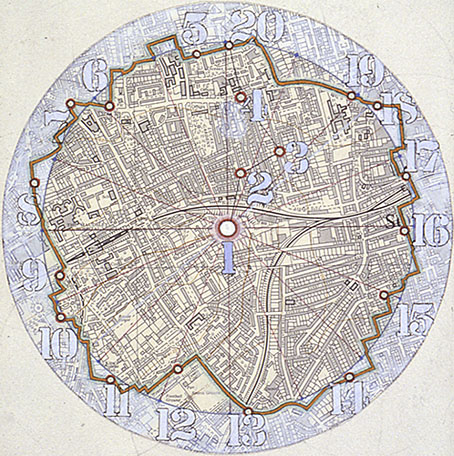
As before, the project details are as follows:
Every year on or around the same day (24th May–2nd June) at the same time of day and from the same position a photograph is taken at each of the twenty locations on this map (above) which is based on a circle of half a mile radius drawn around the place (Site 1: 102 Grove Park SE15) where the project was devised. It is hoped that this process will be carried on into the future and beyond the deviser’s death for as long as the possibility of continuing and the will to undertake the task persist.
The intention is that photographs (35 mm transparencies) be taken at twenty locations each year between May 24 and June 2. The locations are situated on what is (in 1973) the nearest walkable route to a perfect circle a half a mile in radius from the point in the home of Artist 1 (102 Grove Park, London SE5) where the project was devised and where these instructions were written. The circuit is divided into sixteen equal sections in each of which there is a site selected by Artist 1. Four other locations mark the route from the centre to the circumference: these are the former studio of Artist 1, his current home and studio, and the art school where he studied. The project book notes the times of the original photographs of 1973 and these should be adhered to as closely as possible (though all photos need not necessarily be taken on the same day) Artist 1 intends that the pictures should be taken by his family and their descendants, if they are willing, and that the work should thus go on indefinitely: the services of their friends may be enrolled or even from time to time that of professional photographers. Continuity is the most important factor.
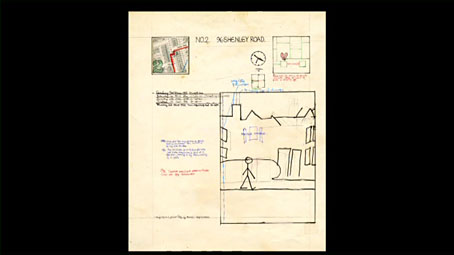
One of the pages from the project manual showing the location of Site 2, the hour of day at which the photo should be taken, where to stand when taking it, and a diagram of the preferred framing.
Auerbach’s 45-minute film begins with a brief description of the piece, after which we follow Phillips in 2012 on his annual excursion around the streets of Camberwell and Peckham in South London. Auerbach juxtaposes the arrival of artist and camera crew at each prescribed location with Phillips’ own description of the changes he’s observed since first commencing the project in 1973. During the narration we get to see many of the photographs, more than the few examples shown in Works and Texts. The film also includes extracts from a couple of earlier documentaries about Phillips, including his appearance on the BBC’s Late Show in 1989 which featured a shorter 20 Sites project report.
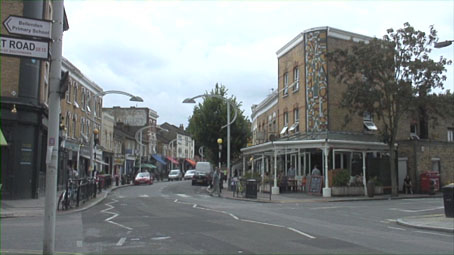
A local street that isn’t part of the project but which does feature street lights and a mural designed by Tom Phillips.
Auerbach’s trailing of the artist shows us aspects of the project that you don’t get in the big Thames & Hudson book or on the Tom Phillips website (where you can see slide-shows of all the views to date), the most prominent being a sense of the space in which each photograph is taken. London south of the river is a vast suburban sprawl that lacks the layered history of the northern quarters of the city. This might seem unpromising material for an art project but Phillips’ photographs remind us that “promise” is a quality dependent on the artist’s point of view, literally in this case with the dogged and very specific attention given to these twenty sites. In place of grand history we have the incremental advance of those changes which often go unnoticed or unremarked in city life: a tree grows, cars (and people) update their styling, a building is repurposed or demolished, street furniture appears then disappears, shops change their appearance and operation, public areas are subject to seemingly arbitrary alterations at the hands of council workers.
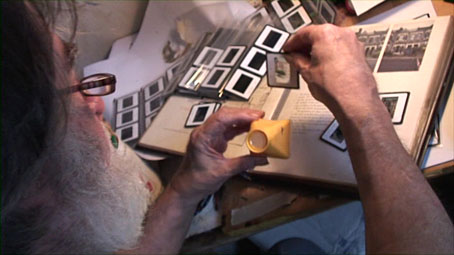
Auerbach shows us further details that we wouldn’t otherwise see, such as the aerosol marks made on the pavement each year showing where the photographer has to stand in order to take a shot that matches the earlier ones. We also get to see Phillips choosing the best shots after they’ve been processed. One of the impromptu conventions of the project has required people to appear at some of the quieter sites, random strangers (or animals) at Site 2, while Site 3 incorporates friends or relatives of the artist. John L. Walters, the editor of Eye magazine, occupies the latter role on the day that Auerbach is present.
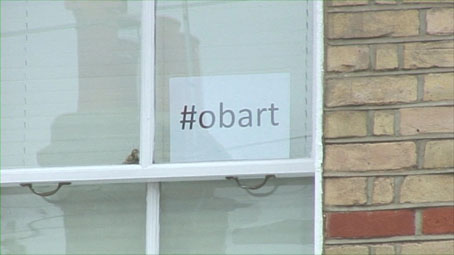
The project becomes self-aware. “Obart” was the name of a mysterious business or organisation that vanished soon after being chosen as Site 15. The name has since been an informal title for the project as a whole. The hashtag is in the window of one of the houses situated next to the original Obart sign.
Now that “Artist 1” is no longer with us, the project moves into a new phase with “Artist 2” (Phillips’ son, Leo) taking charge. Leo Phillips was already on board in 1989 so the annual excursion must be a familiar routine by now. Next year the project will have been running for 50 years which must make it the longest continually-running art project to date unless there’s a more extended one out there. Michael Heizer’s City recently attained completion after 50 years buts it’s debatable whether a work that was a construction site for most of those years should be considered as operating in the same sense as 20 Sites, a project which was functioning as intended from its first year. Meanwhile, I’ve yet to hear about the existence of an “Artist 3” ready to take up the camera after Leo Phillips, but whoever that individual might be they could conceivably take 20 Sites through to its centenary in 2073. Time will tell.
Previously on { feuilleton }
• 20 Sites n Years revisited
• 20 Sites n Years by Tom Phillips

